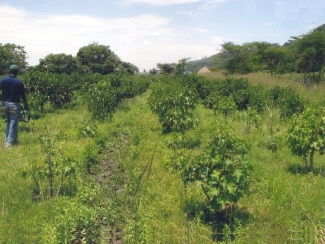FILTER
Displaying 211 - 220 of 366 publications
It is conventional wisdom that poor households use less water than rich households, and intuition suggests that an increasing block tariff with a lifeline block will target subsidies to poor…
| EfD Discussion Paper |This research investigates the profitability of biofuels production in Africa, taking Ethiopia as a case in point, and suggests an oil price threshold beyond which biofuel may be profitable…
| EfD Discussion Paper | Ethiopia, Global HubFew studies have examined the dynamic aspect of the effect of natural resource collection on child education. This paper looks into the effect of resource collection on child education using panel…
| EfD Discussion Paper | EthiopiaWe examine the effect of the introduction of uniform water-charging for aquifer management and provide evidence using a survey-based choice experiment of agricultural water users in rural Tunisia…
| EfD Discussion Paper | South AfricaThat wealthier developing country households may rely more heavily on child labor than poorer households has come to be known as the “wealth paradox.” This paper tests for a wealth paradox with regard…
| EfD Discussion Paper | Central AmericaWeather fluctuations tend to be as important as climate change in farmers’ decision making in countries such as Ethiopia that have virtually no weather insurance. This paper assesses the distinct…
| EfD Discussion Paper | EthiopiaProtected areas are a cornerstone of forest conservation in developing countries. Yet we know little about their effects on forest cover change or the socioeconomic status of local communities, and…
| EfD Discussion Paper |This paper provides the first county-level analysis of the impacts of weather variability on rice yield in China, by compiling a unique panel on irrigated single-season rice and daily weather data. We…
| EfD Discussion Paper | ChinaWe estimate local effects of Payment for Environmental Services (PES) programs on poverty in Costa Rica between 2007 and 2009. Using household surveys and spatial geographic data, we are able to…
| EfD Discussion Paper | Central AmericaBecause the effectiveness of payment for ecosystem services (PES) programs depends on landowners’ engagement, understanding the relationship between the type of payment and participation is a key…
| EfD Discussion Paper | Sweden